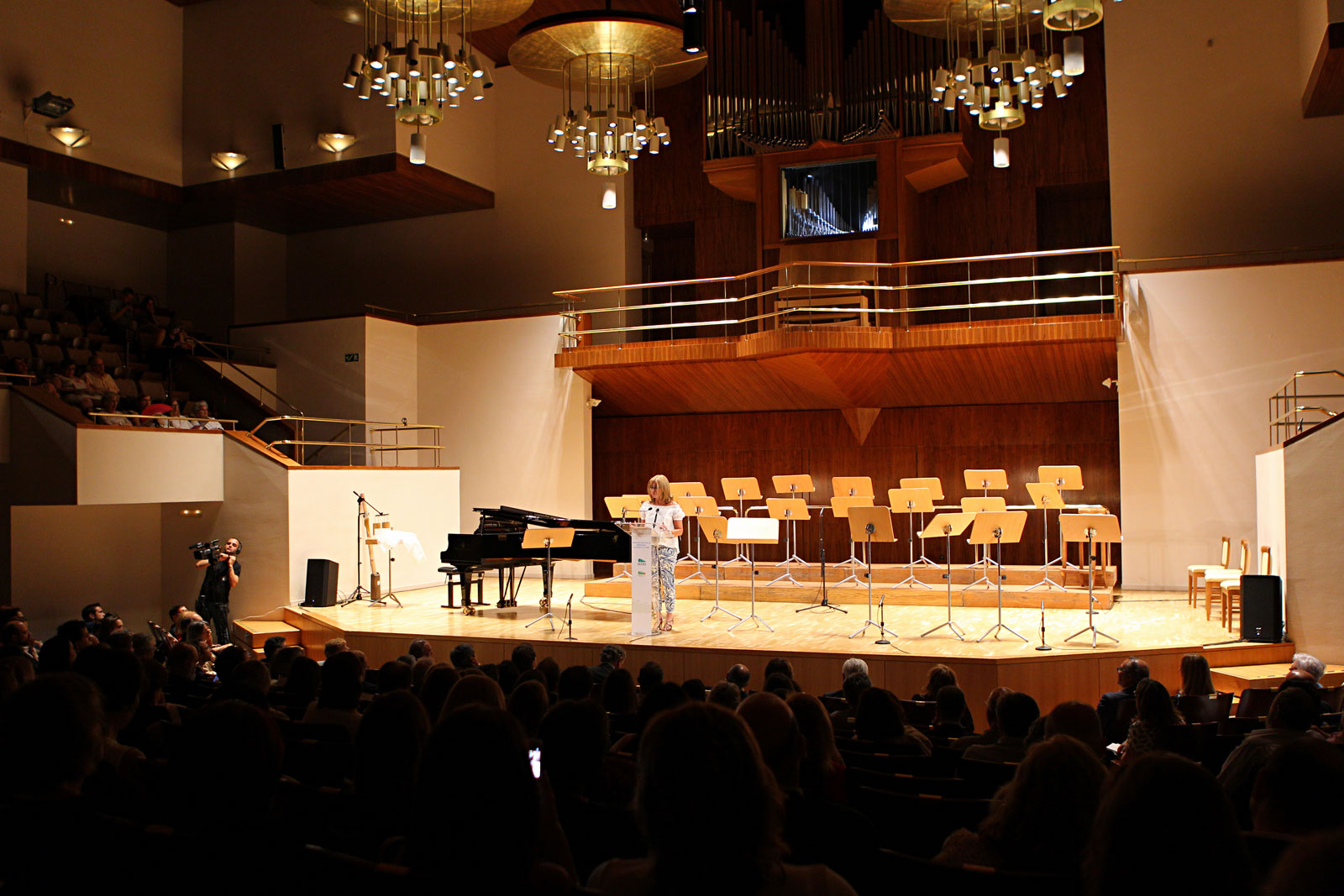AECOSAN apoya el proyecto ‘Prevención de la Obesidad. Aligera tu vida’ de la Fundación SEEDO
Post: Spanish Agency for Consumer Affairs, Food Safety and Nutrition
Date: 30 junio 2017
Section: Agencia española de Consumo, Seguridad alimentaria y Nutrición
Presentation ceremony in the Auditorium with excepts from the opera 'La extraordinaria vida de Sugar Blood’ (The extraordinary life of Sugar Blood) about a young girl with diabetics, written by the Catalan, Alberto Garcia Demestres

On 28 June the programme PREVENTION OF OBESITY. LIGHTEN UP YOUR LIFE, was presented. It is promoted by the Spanish Society for the Study of Obesity (FSEEDO), with the support of the Ministry of Health, Social Services and Equality through the Spanish Agency for Food Safety and Nutrition (AECOSAN) and the Carlos III Institute of Health. It seeks to mobilise the general society in the prevention and treatment to slow and reverse obesity, a disease which threatens more than 30% of the adult population at global level according to the most recent figures from the WHO, and which is one of the main public health problems with a high prevalence, in Spain as well.
The presentation took place in a cultural ceremony, at the Madrid Auditorium, before an audience of more than 600 from the medical and scientific, institutional, and business communities, patients associations and the media, with excerpts from the opera La extraordinaria vida de Sugar Blood, that describes the experience of a young girl with diabetes. The opera was composed by the Catalan Alberto García Demestres, and the script was written by Cristina Pavarotti and García Demestres; sung by a tenor, soprano, mezzo-soprano and baritone with a choir of more than thirty children from the Cor Vivaldi Petits Cantors de Catalunya.
In addition to the Executive Director of the AECOSAN, Dr Teresa Robledo, also present were Dr Felipe F. Casanueva, president of the SEEDO Foundation; Dr Francisco Tinahones, president of SEEDO; Dr Jesús Fernández Crespo, Director general of the Carlos III Institute of Health; and José Ramón Lete, president of the Higher Council for Sport.
The programme ‘Prevention of Obesity. Lighten up your life’, is a far-reaching project, lasting three years, with numerous activities taking place. These include scientific conferences, awards to young researchers, social events, sporting events, meetings with industry, epidemiological studies and technological applications, in the programme up to 2018.
The SEEDO Foundation is promoting this extensive project generated from a medical and research professional initiative in order to obtain institutional and social cohesion to stop and reverse the obesity epidemic, including the resources and skills of all the stakeholders involved. Entities including AECOSAN, the Carlos III Institute of Health, through the Biomedical Research Networking Centre in Physiopathology of Obesity and Nutrition. (CIBEROBN), the European Association for the Study of Obesity, EASO, and companies such as Gadisa, Vegalsa-Eroski or the inter-professional Spanish dairy organisation, Inlac, appear in the list of collaborators. The project seeks to involve many other scientific societies, specialised professionals, patients’ associations, GPs, foundations, the food industry and media groups.
Obesity is a risk factor for other cardiovascular diseases, diabetes, musculoskeletal disorders and some cancers such as breast or colon cancer. Since 1980 obesity has doubled in the whole world. In Spain, according to the latest studies (National Health Survey 2011/12 and European Health Survey 2014 and the ALADINO Study 2015), the prevalence of overweight and obesity has been stabilised in both adults and in the infant population in recent years. Nevertheless, the prevalence continues to be high, with a prevalence of overweight of 36.7% in the adult population over 18 years old and 23.2% in children aged between 6 and 9, and a prevalence of obesity of 17% in the adult population and 18.1% in the infant population, placing Spain among the countries with the highest prevalences in Europe.